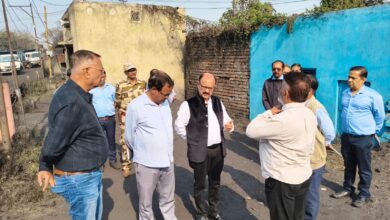DST-FICCI Workshop Highlights Importance of Industry Participation in National S&T Survey 2024–25
Industry participants were encouraged to contribute data to benefit from sectoral benchmarking, policy visibility, and participation in national innovation dialogues

The Department of Science and Technology (DST), Government of India, in collaboration with the Federation of Indian Chambers of Commerce and Industry (FICCI), organized an outreach workshop in Hyderabad on the ongoing National Science & Technology (S&T) Survey 2024–25. The survey is a key initiative to assess India’s R&D investment, S&T manpower, and innovation landscape—crucial for shaping future research and innovation policies. It also contributes to international indices such as the Global Innovation Index and the SDG Global Indicator Framework.
Key Dignitaries and Participants
The workshop was graced by Dr. Arvind Kumar, Advisor & Head, NSTMIS, DST; Dr. Arabinda Mitra, Former Adviser & Head, DST and Former Scientific Secretary, Office of PSA to the Government of India; Dr. Rabindra Kumar Panigrahy, Scientist-E, NSTMIS, DST; Mr. Bala Prasad Peddigari, Chief Innovation Officer, TCS; Dr. Radhakishore Pandrangi, Chair, FICCI Telangana Aerospace & Defence Committee & Director, HC Robotics Pvt Ltd; Mr. Arun Kumar, Additional General Manager – Strategic Cell, Bharat Dynamics Limited; and Mr. Dhruv Gupta, Member, FICCI Telangana Executive Committee & Partner – Strategy & Innovation, Eternify Advisors.
Bridging the Industry Participation Gap
Despite the growing contribution of private enterprises and MNCs to India’s innovation economy, participation from the industry in the national S&T survey has remained limited. Experts emphasized that active engagement is crucial, as the data collected feeds into national and global policy frameworks, enabling evidence-based decision-making and accurate representation of India’s innovation potential.
Industry participants were encouraged to contribute data to benefit from sectoral benchmarking, policy visibility, and participation in national innovation dialogues.
DST’s Vision for Data-Driven Policy
Addressing the gathering, Dr. Arvind Kumar highlighted the role of DST as India’s nodal policy body for science and innovation: “The National S&T Survey provides valuable insights into the R&D ecosystem—covering investments, manpower, and institutional participation. This data, shared with UNESCO and other international bodies, helps benchmark India’s progress globally. While R&D investment in India has doubled between 2011–12 and 2021–22, industry’s share still needs to rise from 40% toward the global norm of 70%. Bridging this gap is essential for realizing India’s innovation ambitions.”
He further noted that national initiatives like the National Quantum Mission, Semiconductor Mission, and National AI Mission are driving deeper industry participation in frontier technologies.
Call for Data-Backed Policy Formulation
Dr. Arabinda Mitra reiterated that accurate industry data is key to informed policy decisions: “India’s R&D ecosystem lies at the core of our journey toward becoming a developed nation by 2047. To shape credible policies and global narratives, industry must proactively participate in DST surveys and share authentic data. This collaboration will help bridge existing data gaps and accelerate innovation-led growth.”
Insights from NSTMIS
Dr. Rabindra Kumar Panigrahy presented detailed findings from previous surveys, noting that DST’s 50-year dataset provides a comprehensive view of India’s evolving R&D landscape, including indicators like Gross Expenditure on R&D (GERD) and Full-Time Equivalent (FTE) research manpower.
Industry Perspective
Dr. Radhakishore Pandrangi, Director, HC Robotics Pvt Ltd, emphasized closer industry–research collaboration: “India’s innovation ecosystem is gaining momentum, but we need deeper partnerships between industry and academia to match global leaders like Israel and Estonia. Hyderabad, with its strong R&D base, has immense potential to lead this transformation.”




